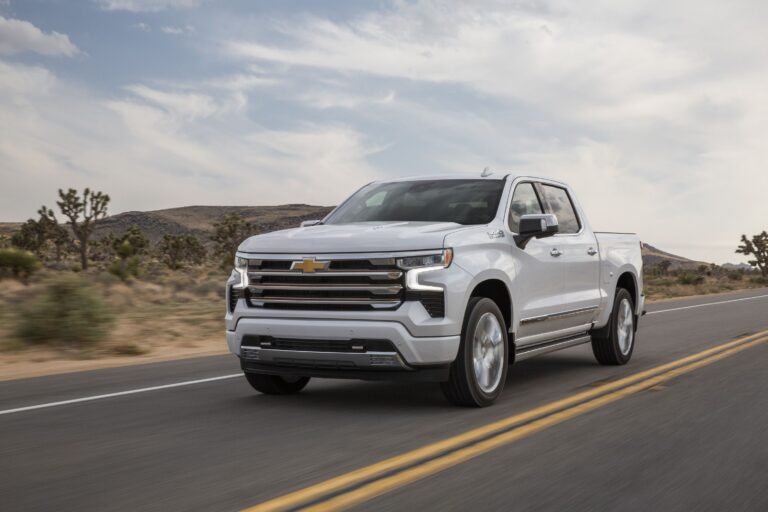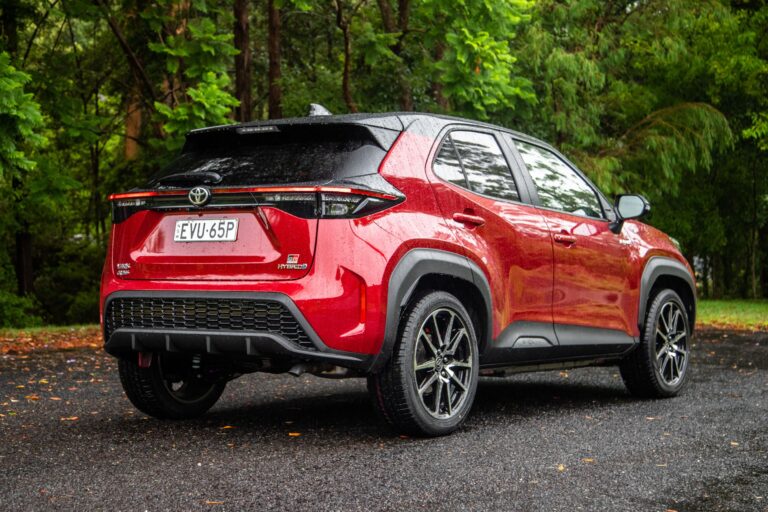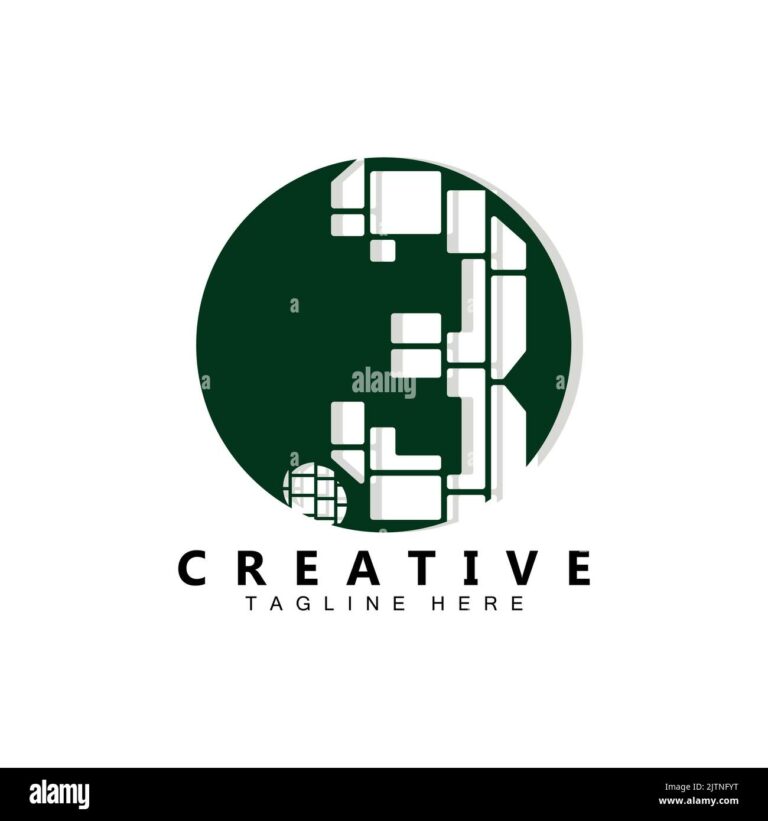Most Reliable SUV Car Brands: Your Ultimate Guide to Durability and Peace of Mind
Most Reliable SUV Car Brands: Your Ultimate Guide to Durability and Peace of Mind cars.truckstrend.com
In the vast and ever-expanding automotive landscape, the Sport Utility Vehicle (SUV) has emerged as a dominant force, prized for its versatility, spaciousness, and commanding road presence. From daily commutes to adventurous road trips, SUVs cater to a wide range of needs. However, beneath the appealing design and feature-rich interiors, one factor stands paramount for discerning buyers: reliability.
Reliability, in the context of an SUV, signifies its ability to perform consistently over time with minimal breakdowns, unexpected repairs, and high maintenance costs. It’s about the vehicle’s durability, the quality of its components, and the manufacturer’s commitment to robust engineering. Choosing a reliable SUV isn’t just about saving money on repairs; it’s about safety, peace of mind, strong resale value, and the confidence that your vehicle will get you where you need to go, every time. In an era where automotive technology is rapidly advancing, understanding which brands consistently deliver on the promise of reliability is more crucial than ever. This comprehensive guide will delve into what makes an SUV reliable, highlight the brands that consistently top reliability charts, and offer actionable advice for making an informed purchase.
Most Reliable SUV Car Brands: Your Ultimate Guide to Durability and Peace of Mind
Understanding SUV Reliability: What Does It Truly Mean?
The concept of reliability goes beyond simply avoiding a breakdown. It encompasses several key aspects:
- Durability and Longevity: How well the vehicle’s components, from the engine and transmission to the suspension and electronics, withstand wear and tear over many years and miles.
- Low Frequency of Repairs: A reliable SUV spends less time in the service bay for unscheduled repairs.
- Predictable Maintenance: While all vehicles require maintenance, reliable SUVs often have straightforward, predictable service schedules without surprising, major component failures.
- Consistent Performance: The vehicle maintains its original performance characteristics (e.g., fuel efficiency, power delivery) over its lifespan.
- High Owner Satisfaction: Owners of reliable vehicles typically report greater satisfaction due to fewer frustrations and unexpected expenses.

To gauge reliability, consumers often turn to independent automotive organizations that collect data from millions of vehicle owners. Prominent sources include:
- J.D. Power: Known for its Vehicle Dependability Study (VDS), which measures problems experienced by original owners of three-year-old vehicles.
- Consumer Reports: Gathers data from its members on issues encountered with their vehicles, providing predicted reliability ratings for new and used cars.
- RepairPal: Offers insights into average repair costs and frequencies for various makes and models.
- NHTSA (National Highway Traffic Safety Administration): Provides data on recalls and safety investigations, which can indirectly reflect underlying quality issues.
These metrics collectively paint a picture of a brand’s and a specific model’s long-term dependability, guiding consumers towards choices that offer lasting value.
Top Contenders: The Most Reliable SUV Brands
While reliability can vary by specific model and even year, certain brands have consistently built a reputation for engineering vehicles that stand the test of time. Here are the leading contenders in the SUV reliability arena:
- Toyota: Unquestionably, Toyota consistently ranks at or near the top of almost every reliability index. Their philosophy of "Kaizen" (continuous improvement) and rigorous quality control results in vehicles renowned for their bulletproof powertrains and enduring components. Popular SUV models like the RAV4, Highlander, and 4Runner are often cited for their exceptional longevity and low ownership costs.
- Lexus: As Toyota’s luxury division, Lexus inherits the same robust engineering and manufacturing prowess, often topping reliability charts for luxury vehicles. Models such as the RX, NX, and GX combine upscale comfort and performance with Toyota’s legendary dependability, making them an excellent choice for those seeking premium features without sacrificing peace of mind.
- Honda: Another Japanese automotive giant, Honda is celebrated for its highly durable engines and well-engineered vehicles. Their SUVs, including the CR-V and HR-V, are consistently praised for their balanced performance, fuel efficiency, and long-term reliability. Honda’s reputation for quality extends across its lineup, ensuring a solid choice for families and individuals alike.
- Mazda: In recent years, Mazda has significantly elevated its game, consistently earning high marks for reliability and driving dynamics. Their commitment to quality materials and meticulous engineering has paid off. SUV models like the CX-5, CX-30, and CX-90 offer a blend of sporty handling, premium interiors, and impressive dependability, often outperforming some luxury brands in reliability surveys.
- Subaru: Known for its standard symmetrical all-wheel drive (AWD) and horizontally opposed "Boxer" engines, Subaru has carved out a niche for durability, especially in challenging climates. The Forester, Outback, and Crosstrek are favored by those seeking adventure and practicality, backed by a strong reputation for reliability and safety.
- Hyundai & Kia: These South Korean sister brands have made remarkable strides in reliability over the past decade, now frequently ranking among the top performers. With aggressive warranties (often 10-year/100,000-mile powertrain warranties) and significant investments in quality control, models like the Hyundai Tucson, Santa Fe, Palisade, and Kia Sportage, Sorento, Telluride offer compelling value, stylish designs, and increasingly dependable performance.
- Acura: Honda’s luxury arm, Acura, benefits from Honda’s core engineering strengths. While not always as high on the luxury reliability charts as Lexus, models like the MDX and RDX consistently demonstrate strong reliability, offering a sporty driving experience with solid long-term dependability.
These brands have consistently demonstrated a commitment to quality, leading to lower repair frequencies and higher owner satisfaction across their SUV lineups.
Factors Contributing to Long-Term SUV Reliability
Several underlying factors contribute to a vehicle’s ability to remain reliable over many years:
- Engineering and Manufacturing Quality: Precision in design, robust materials, and stringent quality control during the manufacturing process are paramount. Brands that invest heavily in these areas tend to produce more reliable vehicles.
- Powertrain Durability: The engine and transmission are the heart of any vehicle. Reliable SUVs typically feature well-tested, proven powertrains designed to withstand the rigors of daily use and high mileage.
- Material Quality and Assembly: High-quality interior and exterior materials, coupled with excellent assembly, prevent premature wear, squeaks, rattles, and component failures.
- Simplicity and Proven Technology: While advanced technology is appealing, overly complex or untested systems can introduce reliability issues. Brands that prioritize proven technology or integrate new features seamlessly and reliably tend to fare better.
- Ease of Maintenance: Vehicles designed with accessible components for routine maintenance (e.g., oil changes, filter replacements) often encourage owners to adhere to service schedules, thereby prolonging the vehicle’s life.
- Brand Reputation and Track Record: A brand’s historical performance in reliability surveys and long-term ownership experiences often indicates its future reliability.
How to Research and Choose a Reliable SUV
Choosing a reliable SUV involves more than just picking a brand. Here’s a practical guide to making an informed decision:
- Consult Reputable Reliability Data: Start with J.D. Power, Consumer Reports, and RepairPal. Look at predicted reliability for new models and historical reliability for used ones.
- Read Owner Reviews and Forums: Real-world experiences from current and past owners can provide invaluable insights into common issues, maintenance costs, and overall satisfaction.
- Check Recall History: Use the NHTSA website to check for any recalls on specific models or years you are considering. A high number of recalls might indicate underlying design or manufacturing flaws.
- Consider Certified Pre-Owned (CPO) Vehicles: If buying used, CPO programs offer rigorous inspections and extended warranties, providing an added layer of reliability assurance.
- Understand Maintenance Schedules and Costs: Research the manufacturer’s recommended maintenance schedule and estimate the cost of routine services. Some reliable vehicles might have specific, albeit less frequent, expensive services (e.g., timing belt replacement).
- Get a Pre-Purchase Inspection (PPI): For used SUVs, a thorough inspection by an independent mechanic you trust can uncover hidden issues that might affect long-term reliability.
- Test Drive Thoroughly: Pay attention to how the vehicle feels and sounds. Listen for unusual noises, test all electronic features, and evaluate the overall driving experience.
Beyond the Brand: Model-Specific Reliability and Maintenance Tips
While brand reputation is a strong indicator, it’s crucial to remember that reliability can vary even within a single brand’s lineup. A brand known for reliability might have one or two models that don’t quite measure up, or specific engine/transmission combinations that are less robust. Always research the specific model and year you are interested in.
Once you own a reliable SUV, proactive maintenance is the single most important factor in ensuring its longevity:
- Adhere to Manufacturer’s Service Schedule: This is non-negotiable. Regular oil changes, tire rotations, fluid checks, and filter replacements are essential.
- Address Issues Promptly: Don’t ignore warning lights or unusual noises. Small problems can quickly escalate into costly repairs if left unaddressed.
- Use Quality Parts and Fluids: When replacing components or topping up fluids, use parts and fluids that meet or exceed manufacturer specifications.
- Drive Responsibly: Avoid aggressive driving, harsh braking, and sudden acceleration. These habits put unnecessary stress on the powertrain and other components.
- Keep Detailed Records: Maintain a log of all maintenance and repairs. This is valuable for troubleshooting, proving a vehicle’s history for resale, and adhering to warranty requirements.
Challenges and Misconceptions about SUV Reliability
Despite the clear benefits of reliability, several challenges and misconceptions persist:
- "Luxury SUVs are always reliable because they’re expensive": Not necessarily. Luxury vehicles often incorporate more complex technologies and exotic materials, which can sometimes lead to more frequent and expensive issues than simpler, mainstream models. While brands like Lexus excel, others may struggle.
- "New features mean less reliability": While new, untested technology can sometimes introduce initial glitches, reputable manufacturers thoroughly test new systems. The challenge lies in striking a balance between innovation and proven dependability.
- "High repair costs mean the car is unreliable": Some repairs are inherently expensive due to the complexity or cost of specific parts, regardless of how frequently they occur. A single, very expensive repair doesn’t automatically mean the vehicle is unreliable if it’s an isolated incident over a long period.
- Balancing Reliability with Other Priorities: Buyers often want a blend of reliability, performance, features, and style. The challenge is finding an SUV that delivers on dependability without compromising too much on other desired attributes or exceeding budget.
Estimated Price Range for Reliable SUV Brands (New Models)
Please note that these are estimated price ranges for new SUV models from the respective brands. Actual prices can vary significantly based on the specific model, trim level, optional features, region, and dealer incentives.
| Brand | Typical SUV Models | Estimated New Price Range (USD) | Key Reliability Factors |
|---|---|---|---|
| Toyota | RAV4, Highlander, 4Runner, Corolla Cross, Sequoia, Venza | $24,000 – $75,000+ | Legendary durability, proven powertrains, low maintenance |
| Lexus | RX, NX, GX, LX, UX | $38,000 – $100,000+ | Premium quality, refined Toyota engineering, strong resale |
| Honda | CR-V, HR-V, Pilot, Passport | $25,000 – $55,000+ | Durable engines, robust construction, balanced performance |
| Mazda | CX-5, CX-30, CX-50, CX-90, CX-9 | $24,000 – $60,000+ | High-quality materials, meticulous engineering, engaging drive |
| Subaru | Forester, Outback, Crosstrek, Ascent | $25,000 – $50,000+ | Symmetrical AWD, Boxer engine durability, robust build |
| Hyundai | Tucson, Santa Fe, Palisade, Kona, Venue | $22,000 – $50,000+ | Improving quality, strong warranties, feature-rich |
| Kia | Sportage, Sorento, Telluride, Seltos, Niro | $22,000 – $55,000+ | Aggressive warranties, stylish designs, rising dependability |
| Acura | RDX, MDX, ZDX | $45,000 – $70,000+ | Honda’s reliability foundation, sporty performance, luxury feel |
Frequently Asked Questions (FAQ) about SUV Reliability
Q1: Is luxury SUV reliability different from mainstream SUV reliability?
A1: Often, yes. While some luxury brands like Lexus (Toyota’s luxury arm) are exceptionally reliable due to shared engineering with their mainstream counterparts, others can be less reliable. Luxury vehicles often incorporate more complex electronic systems, air suspensions, and advanced features that can be more prone to issues and more expensive to repair than simpler mainstream vehicles.
Q2: Does all-wheel drive (AWD) affect reliability?
A2: AWD systems add complexity, which can theoretically introduce more potential points of failure than a simpler front-wheel-drive (FWD) or rear-wheel-drive (RWD) system. However, well-engineered AWD systems (like Subaru’s Symmetrical AWD or Toyota’s systems) are very robust and do not significantly impact overall reliability for most owners, provided they are maintained properly.
Q3: Are electric SUVs (EV SUVs) more or less reliable than gasoline SUVs?
A3: Electric vehicles generally have fewer moving parts (no engine, transmission, exhaust system, etc.), which theoretically could lead to higher reliability. However, EV technology is still evolving, and issues can arise from battery degradation, charging systems, and complex software. Early data suggests they can be very reliable, but long-term data is still accumulating.
Q4: How much does maintenance typically cost for reliable SUVs?
A4: While "reliable" means fewer unexpected repairs, routine maintenance is still necessary. For a reliable mainstream SUV (e.g., Toyota RAV4, Honda CR-V), expect average annual maintenance costs to be in the range of $400-$600. Luxury reliable SUVs (e.g., Lexus RX) might be slightly higher due to premium parts and labor rates, perhaps $600-$900 annually. These are just estimates and can vary based on driving habits, mileage, and where you get service.
Q5: What’s the best resource for current reliability data?
A5: For the most up-to-date and comprehensive reliability data, Consumer Reports and J.D. Power are widely considered the gold standard. They collect extensive data directly from vehicle owners and provide detailed reports and rankings annually. Websites like Edmunds and Kelley Blue Book also offer valuable insights from owner reviews and expert opinions.
Conclusion
Choosing an SUV is a significant investment, and prioritizing reliability ensures that investment pays dividends in the form of lower ownership costs, fewer headaches, and greater peace of mind. Brands like Toyota, Lexus, Honda, Mazda, and Subaru have consistently demonstrated their commitment to building durable, dependable vehicles that stand the test of time.
While brand reputation is a strong starting point, remember to delve into the specific model and year you are considering, consult independent reliability reports, read owner reviews, and commit to a diligent maintenance schedule. By combining smart research with proactive care, you can confidently drive off in an SUV that will reliably serve you and your family for years to come, truly making it a smart and lasting choice.





